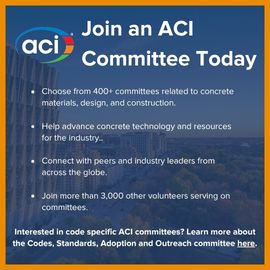
Year-end U.S. legislation affects the construction industry
![]() The residential and commercial construction industries, still reeling from the impacts of the coronavirus pandemic, will find some respite in the Consolidated Appropriations Act (H.R. 133), which passed the United States Congress on Dec. 21, 2020, and was signed into law on Dec. 27, 2020, by the U.S. president.
The residential and commercial construction industries, still reeling from the impacts of the coronavirus pandemic, will find some respite in the Consolidated Appropriations Act (H.R. 133), which passed the United States Congress on Dec. 21, 2020, and was signed into law on Dec. 27, 2020, by the U.S. president.
The sweeping year-end legislation combined additional coronavirus pandemic relief, several legislative authorizations, federal fiscal year 2021 spending and tax extenders. Below is a brief summary of what was included in the bill from a construction industry perspective as well as areas of interest for International Code Council members, stakeholders and industry partners.
Pandemic response
- The Coronavirus Relief Fund (CRF) previously provided $150 billion to help state and local governments respond to the pandemic. Dozens of jurisdictions provided building and fire prevention departments with millions in CRF funding to address hardware and software needs. Despite efforts — supported by the Code Council and many others — the bill does not include additional CRF funding. However, it does extend the deadline from December 2020 to December 2021 for governments to expend existing funds.
- Extends Paycheck Protection Program (PPP) loans to 501(c)(6) organizations (that were not previously eligible) with employee counts below 300. State associations that are incorporated as 501(c)(6)s organizations may be eligible.
Authorizations
- The Carbon Monoxide Alarms Leading Every Resident to Safety (CO ALERTS) Act authorizes more than $300 million to install carbon monoxide detectors in federally assisted housing and requires federally assisted housing to install carbon monoxide detectors consistent with 2018 International Fire Code requirements by the end of 2022.
- The American Innovation and Manufacturing Act directs the U.S. Environmental Protection Agency to phase down the production and consumption of hydrofluorocarbons (HFCs) by 85 percent over 15 years. State and local governments are preempted from regulating HFCs for designated essential uses (defense sprays, medical inhalers, semiconductor manufacturing and mission-critical military uses) for at least five years.
- The Safer Occupancy Furniture Flammability (SOFFA) Act requires that by June 25, 2021, the U.S. Consumer Product Safety Commission adopt the California upholstered furniture flammability standard known as Technical Bulletin 117-2013 as a national flammability standard and preempts conflicting state and local regulations.
Fiscal year 2021 appropriations
- Community Development Block Grants — increases funding of $25 million from fiscal year 2020 levels to $3.45 billion for Community Development Block Grants (CDBG) funding, which can be used to support code enforcement, and encourages CDBG to be used to address blight and abandoned property.
- Public housing agencies — directs HUD to evaluate how public housing authorities can work with local code enforcement agencies to improve health and safety conditions at units assisted with Section 8 vouchers.
- Public housing fund — establishes a $60 million competitive grant program for reducing hazards, including lead ($25 million set aside), carbon monoxide and mold.
- Air traffic control — directs the Federal Aviation Administration to address aging facilities and ensure compliance with current building codes.
- Forward-looking building standards — directs the National Institute of Standards and Technology to identify a consistent and authoritative set of forward-looking climate projections that standards development organizations and others can utilize.
- Military installations — requires adherence to construction standards that address extreme weather and changes in environmental conditions.
- Federal Emergency Management Agency grants — increased funding by $5 million over fiscal year 2020 levels to $360 million each for Staffing for Adequate Fire and Emergency Response grants and Assistance to Firefighters Grants, which have historically funded code enforcement and awareness efforts. Emergency Management Performance Grants were level-funded at $355 million.
- Building Energy Codes Program — provides $10 million for the Building Energy Codes Program within the U.S. Department of Energy (DOE), consistent with the fiscal year 2020 level.
- Clean energy workforce development — encourages the DOE to allocate funding for training and workforce development programs, focusing on building retrofits and the construction industry.
- Distributed energy – the DOE is to continue and expand programs to reduce both market barriers and soft costs and to develop programs that support indirect solar workers, in jobs related to financing and permitting.
- Battery storage — Encourages the DOE to allocate resources to provide training and technical assistance to firefighters and code inspectors on battery storage, such as through scenario-based in-person or online training.
- EnergyStar program — rejected an effort to make the program fee-based and preserves the program in its current form.
- WaterSense program — maintained funding at $4.5 million, consistent with fiscal year 2020 levels.
Tax extenders
- Residential efficiency tax credits — one-year extension (expiring Dec. 31, 2021) for the 25C credit for homeowners making energy-efficiency improvements, which is tied to the 2009 International Energy Efficiency Code (IECC), and the 45L credit for homebuilders for new energy-efficient homes that are 50 percent more efficient than the 2006 IECC and supplements.
- Commercial efficiency tax credit — makes the 179D tax credit permanent, indexed to inflation, and tied to the most recently published ASHRAE 90.1 standard within two years before construction.
- Extension and phaseout of energy credit — extends the current 26-percent investment tax credit to solar energy property and small wind energy property constructed by the end of 2022, with a phase-down to 22 percent in 2023, after which the credit is reduced to 10 or zero percent.
- Volunteer firefighters — a permanent extension of the Volunteer Responder Incentive Protection Act, which exempts nominal recruitment and retention benefits that volunteer emergency responders receive from being subject to federal income tax and reporting requirements.








